#scoreassessment
Text
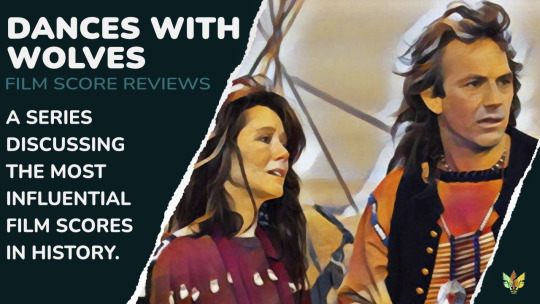
Dances With Wolves Movie Score
https://spearheadsofgod.com/dances-with-wolves-movie-score/?feed_id=1234
In the latest episode of "Film Score Reviews," we delve into the captivating score of "Dances With Wolves." John Barry's masterful compositions not only echo the expansive American frontier but also capture the deep emotions and evolving relationships throughout the film. A musical journey not to be missed!
In the latest episode of "Film Score Reviews," we delve into the captivating score of "Dances With Wolves." John Barry's masterful compositions not only echo the expansive American frontier but also capture the deep emotions and evolving relationships throughout the film. A musical journey not to be missed!https://youtu.be/xlD32Lf-yYM
#FilmScoreReviews#filmscorereview#filmscores#filmsoundtrack#musicanalysis#musiccomposition#musiccritique#musicexploration#musicinmovies#musicinterpretation#musictheory#scoreassessment#scoreevaluation#scorereview#soundtrackanalysis#soundtrackbreakdown#soundtrackstudy
0 notes
Text
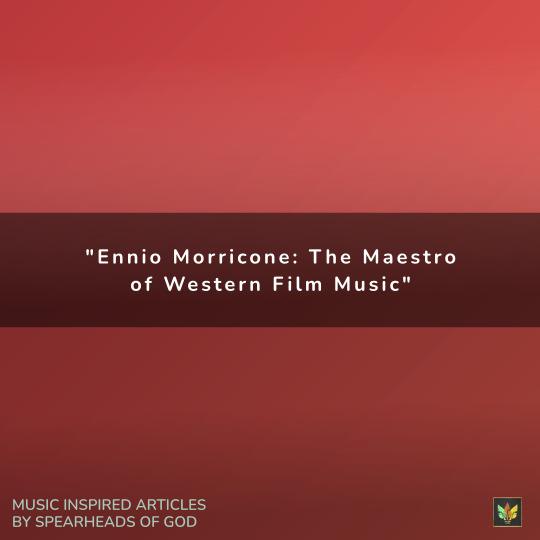
Ennio Morricone: The Maestro of Western Film Music
https://spearheadsofgod.com/ennio-morricone-the-maestro-of-western-film-music/?feed_id=1228
The latest article from Spearheads of God titled "Ennio Morricone: The Maestro of Western Film Music" delves into the legendary composer's innovative contributions to film music, focusing on his iconic scores for Western films. The piece explores Morricone's unique sonic style, the emotional depth of his compositions, and his enduring influence on cinema and music.
Ennio Morricone, a name synonymous with the evocative and immersive soundscapes of Western film music, has left an indelible mark on the world of cinema and music. Born in Rome in 1928, Morricone's prolific career has spanned decades, contributing to over 400 scores for film and television, solidifying his status as the maestro of Western film music. His music, replete with unconventional sound elements and multifaceted orchestration, added layers of emotion and complexity to the films he worked on, predominantly within the Western genre.Morricone's collaborations with filmmaker Sergio Leone are legendary, a creative alliance that birthed the sound of the Spaghetti Western, a subgenre of Western films produced and directed by Italians. Iconic films such as "A Fistful of Dollars" (1964), "For a Few Dollars More" (1965), "The Good, The Bad, and The Ugly" (1966), and "Once Upon a Time in the West" (1968) were transformed into timeless classics through Morricone's compelling scores. The music magnified the essence of each frame, drawing viewers deeper into the landscapes and psyches of the characters on screen. The haunting harmonicas, whistling, and chorus chants in "The Good, The Bad, and The Ugly" exemplified Morricone's innovative approach to musical storytelling, transcending traditional film scoring methods.Ennio Morricone's unconventional use of instruments and sounds played a pivotal role in establishing the identity of Western film music. He frequently incorporated elements such as gunshots, whip sounds, and whistles, blending them seamlessly with more traditional orchestral arrangements. This fusion created a unique sonic texture that distinguished Morricone’s compositions from his contemporaries, providing a distinctive edge to the films he scored. His willingness to experiment with sound contributed to the atmosphere and tension within the movies, fostering a multisensory cinematic experience for the audience.This unorthodox approach to music was pivotal in communicating the raw, gritty essence of Western films. Morricone's integration of non-musical sounds within his compositions resonated with the unrefined, rugged landscapes and characters depicted in these movies. The harmonious melding of conventional and unconventional sound elements translated the visual intensity and depth of the scenes into auditory experiences, allowing viewers to feel and visualize the emotions and actions unfolding on screen.Morricone’s compositions were not confined to serving merely as background scores; they were instrumental in depicting character depth and film narratives. His themes often served as reflections of the characters’ emotions and moral compasses. For instance, the character of “Man With a Harmonica” in “Once Upon a Time in the West” is introduced with a distinctive harmonica theme, a sonic representation of the character’s history and motivations. Such musical motifs recur throughout the films, aiding in character development and narrative progression.The maestro’s thematic compositions were so influential that they almost functioned as additional characters within the films. The recurring themes served as auditory symbols, associating specific melodies with characters or situations, thereby enhancing the narrative structure of the films. The way Morricone’s music guided the emotional journey of the film was a revolutionary aspect of his scoring, imbuing the cinematic narrative with a profound resonance.Ennio Morricone’s
ability to weave complex, emotive tapestries of sound extended beyond the realm of Western films. His versatility as a composer is evident in his expansive body of work, which includes contributions to diverse genres such as drama, comedy, and horror. Films like "The Mission" (1986), where his music beautifully captured the spiritual and cultural conflicts, and "Cinema Paradiso" (1988), where his score added to the nostalgic essence of the film, illustrate the wide range of his musical expression. Each composition was meticulously crafted to suit the tone and theme of the film, demonstrating Morricone’s profound understanding of music’s role in cinematic storytelling.Morricone’s excellence in musical compositions was not restricted to creating atmospheres; he deftly used music to explore and express the human condition. His scores are imbued with a depth of emotion, reflecting the joys, sorrows, conflicts, and resolutions experienced by the characters. Morricone’s music was a vessel of human expression, exploring varied emotions from the ecstatic to the melancholic, the tranquil to the turbulent. The musical landscapes he created served as windows into the human soul, allowing audiences to connect with the films on a more intimate level.The accolades and awards Morricone received throughout his career stand testament to his impact on the world of music and cinema. His achievements include multiple Academy Award nominations, with a win for Best Original Score for "The Hateful Eight" (2015), Golden Globe Awards, Grammy Awards, and the Polar Music Prize. These awards signify the universal acclaim and recognition Morricone received for his innovative and emotive musical contributions. The reverence and respect he commands within the music and film industry highlight the enduring legacy of his work.The influence of Morricone's music extends far beyond the silver screen. Numerous artists and musicians from various genres have cited him as an inspiration, reflecting his wide-reaching impact on the global music landscape. His compositions have been sampled, reinterpreted, and celebrated by diverse musical acts, showcasing the versatility and timeless appeal of his work. The omnipresence of Morricone's musical fingerprints across different musical genres signifies the universal resonance and eternal allure of his compositions.In conclusion, Ennio Morricone’s profound influence on Western film music has shaped the sonic landscapes of cinema. His innovative use of sound, meticulous thematic compositions, and emotive musical expression have elevated film scores to an art form, bridging the gap between music and visual storytelling. His extensive and varied body of work reflects his mastery in understanding and depicting the myriad nuances of human emotion and experience through music. The accolades and widespread appreciation for his work are a testament to his enduring legacy as the maestro of Western film music.Ennio Morricone’s legacy continues to inspire and influence musicians and filmmakers, echoing his timeless appeal and unparalleled contribution to the world of music and cinema. The rich tapestry of sounds he wove has become synonymous with cinematic excellence, leaving an everlasting imprint on the hearts and minds of audiences worldwide.The depth and diversity of Ennio Morricone’s work raise several considerations regarding the evolution of film music and its role in cinematic storytelling. What are your thoughts on the impact of Morricone’s compositions on Western film music and cinema as a whole? How do you perceive his innovative approach to sound in shaping the auditory experience of films? How has his multifaceted musical expression influenced contemporary film scores? The exploration of such questions allows for a deeper appreciation and understanding of the maestro’s indelible mark on the world of film music.
#Articles#filmscorereview#filmscores#filmsoundtrack#musicanalysis#musiccomposition#musiccritique#musicexploration#musicinmovies#musicinterpretation#musictheory#scoreassessment#scoreevaluation#scorereview#soundtrackanalysis#soundtrackbreakdown#soundtrackstudy
0 notes
Text

Gone With The Wind Movie Score
https://spearheadsofgod.com/gone-with-the-wind-movie-score/?feed_id=1217
In the latest installment of "Film Score Reviews," we delve into the iconic score of "Gone with the Wind." Its sweeping melodies and emotive cues brilliantly capture the film's grandeur and emotional depth, leaving an indelible mark on cinematic history. Don't miss it! #GoneWithTheWind, #MaxSteiner, #ScarlettOHara, #RhettButler, #ClassicFilmScores, #OldHollywood, #VictorFleming, #DavidOSelznick, #EpicRomance, #CivilWarEra, #Atlanta, #TaraPlantation, #FilmDirector, #FilmMaking, #CinematicGenius, #GoldenEra, #OrchestralScore, #FilmMusic, #MovieMagic, #MusicSupervisor, #ClassicCinema, #1939Films, #AcademyAwardWinner, #HistoricalFilm, #MusicVideoDirector, #SoundtrackReview.
In the latest installment of "Film Score Reviews," we delve into the iconic score of "Gone with the Wind." Its sweeping melodies and emotive cues brilliantly capture the film's grandeur and emotional depth, leaving an indelible mark on cinematic history. Don't miss it!https://youtu.be/U4gkH4eDGQs
#FilmScoreReviews#filmscorereview#filmscores#filmsoundtrack#musicanalysis#musiccomposition#musiccritique#musicexploration#musicinmovies#musicinterpretation#musictheory#scoreassessment#scoreevaluation#scorereview#soundtrackanalysis#soundtrackbreakdown#soundtrackstudy
0 notes
Text
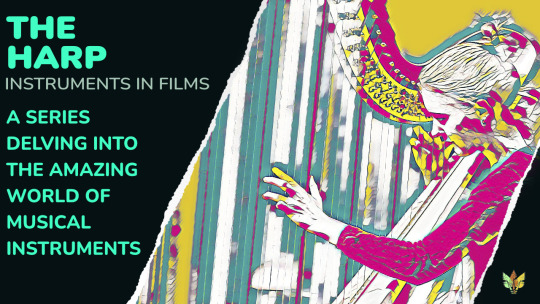
The Harp Instrument
https://spearheadsofgod.com/the-harp-instrument/?feed_id=1210
In our latest video from the series “Instruments in Films”, we delve into the captivating world of the harp, exploring its profound influence on films, TV, and media. Join us as we unravel the strings of this enchanting instrument and its cinematic journey. Don't miss it!
In our latest video from the series “Instruments in Films”, we delve into the captivating world of the harp, exploring its profound influence on films, TV, and media. Join us as we unravel the strings of this enchanting instrument and its cinematic journey. Don't miss it!https://youtu.be/a4DS9GhPbBk
#InstrumentsinFilms#filmscorereview#filmscores#filmsoundtrack#musicanalysis#musiccomposition#musiccritique#musicexploration#musicinmovies#musicinterpretation#musictheory#scoreassessment#scoreevaluation#scorereview#soundtrackanalysis#soundtrackbreakdown#soundtrackstudy
0 notes
Text

Leonard Bernstein in Film Music
https://spearheadsofgod.com/leonard-bernstein-in-film-music/?feed_id=1174
The latest video release in our series "Pioneers of Film Music" delves into the life of Leonard Bernstein and explores how his innovative compositions have influenced films, TV, and media over the years. This episode sheds light on Bernstein's unique musical style and highlights his enduring legacy in the world of film music.
The latest video release in our series "Pioneers of Film Music" delves into the life of Leonard Bernstein and explores how his innovative compositions have influenced films, TV, and media over the years. This episode sheds light on Bernstein's unique musical style and highlights his enduring legacy in the world of film music.https://youtu.be/b0TCI9pthAA
#PioneersofFilmMusic#filmscorereview#filmscores#filmsoundtrack#musicanalysis#musiccomposition#musiccritique#musicexploration#musicinmovies#musicinterpretation#musictheory#scoreassessment#scoreevaluation#scorereview#soundtrackanalysis#soundtrackbreakdown#soundtrackstudy
0 notes
Text
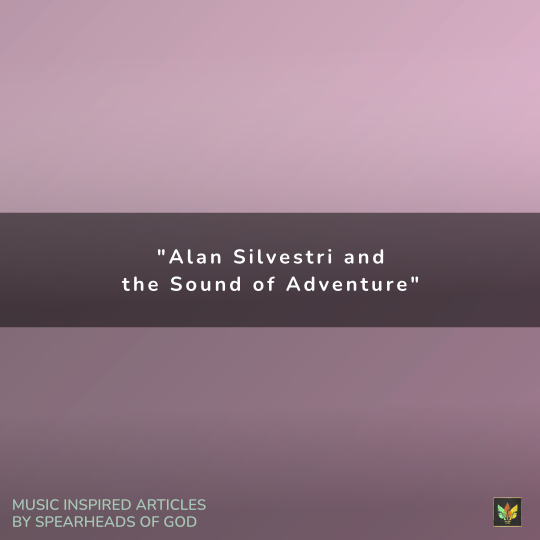
Alan Silvestri and the Sound of Adventure
https://spearheadsofgod.com/alan-silvestri-and-the-sound-of-adventure/?feed_id=1145
In their latest article, "Alan Silvestri and the Sound of Adventure," Spearheads of God explores the renowned composer's career and the impact of his iconic scores on the cinematic experience. The article delves into Silvestri's unique ability to evoke adventure through sweeping melodies and grand orchestral arrangements.
Alan Silvestri has long been known as one of the greatest composers in the history of cinema. With a career spanning five decades, Silvestri has earned his reputation for creating some of the most iconic and recognizable film scores. His music has often been associated with the sense of adventure, from the thrilling scores of the "Back to the Future" series to the epic melodies of the Marvel Cinematic Universe.What sets Silvestri apart from other composers is his unique ability to capture the essence of adventure in his music. Silvestri's scores are characterized by grand orchestral arrangements and sweeping melodies that create an atmosphere of excitement and anticipation. This has made him the go-to composer for filmmakers who want to create an unforgettable cinematic experience. Silvestri's knack for writing captivating scores that enhance the sense of adventure in movies is evident in the way his music has become synonymous with some of the most beloved franchises in cinematic history.The first thing that comes to mind when discussing Silvestri's contributions to the sound of adventure is the iconic score for the "Back to the Future" series. The exhilarating main theme is instantly recognizable and has become one of the most iconic movie themes of all time. Silvestri's compositions for the series perfectly capture the sense of wonder and excitement associated with time travel, creating an atmosphere of adventure that is integral to the films' success. In addition to the main theme, Silvestri composed a variety of memorable pieces for the series that further added to the sense of adventure, such as the exciting chase themes and the romantic love theme. This musical diversity and creativity helped to create a soundtrack that was not only exciting but also emotionally resonant.Another prime example of Silvestri's talent for creating adventurous scores is his work on the Marvel Cinematic Universe films. Silvestri composed the score for several entries in the series, including the first "Avengers" film. The score for "The Avengers" features grand orchestral arrangements and rousing melodies that perfectly encapsulate the sense of adventure and heroism that is central to the film. The main theme, "The Avengers," is an excellent example of this, with its soaring melody and triumphant orchestration creating an atmosphere of excitement and epicness. The score for "Avengers: Endgame" is similarly impressive, with Silvestri returning to the franchise to create a score that captures the emotional intensity of the final battle against Thanos. The music in this film adds a sense of grandiosity and heroism to the climactic scenes, helping to elevate the film to new heights.In addition to his contributions to the sound of adventure, Silvestri's music has also been notable for its use of leitmotifs. A leitmotif is a recurring musical theme associated with a particular character, concept, or emotion. Silvestri's use of leitmotifs has helped to create a sense of continuity and coherence in his scores, further adding to the sense of adventure. In the "Back to the Future" series, for example, Silvestri uses a distinctive leitmotif for the character of Doc Brown, played by Christopher Lloyd. This leitmotif is a lively and energetic theme that perfectly encapsulates the character's eccentric personality and adds to the sense of adventure. Similarly, in the Marvel Cinematic Universe films, Silvestri uses leitmotifs to represent the various Avengers, creating a sense of unity and cohesion in the scores.
This use of leitmotifs helps to further immerse the audience in the world of the films and enhances the sense of adventure.One of the most interesting aspects of Silvestri's music is the way in which he is able to create a sense of adventure through his compositions. His music is characterized by sweeping melodies, grand orchestral arrangements, and the use of leitmotifs. These elements combine to create an atmosphere of excitement and anticipation that is perfect for the adventurous nature of the films he scores. Silvestri's music is a vital part of the cinematic experience, adding a layer of depth and emotion that enhances the sense of adventure.In conclusion, Alan Silvestri's contributions to the sound of adventure in cinema are immeasurable. His iconic scores for the "Back to the Future" series and the Marvel Cinematic Universe films have become synonymous with the sense of adventure, and his use of leitmotifs and grand orchestral arrangements have helped to create an unforgettable cinematic experience. Silvestri's music has become an integral part of the films he scores, adding a sense of excitement and anticipation that enhances the sense of adventure. So, what are your thoughts on Alan Silvestri's music and its impact on the sound of adventure in cinema? What are your favorite scores composed by Silvestri, and how do you feel they contribute to the sense of adventure in the films they accompany?
#Articles#filmscorereview#filmscores#filmsoundtrack#musicanalysis#musiccomposition#musiccritique#musicexploration#musicinmovies#musicinterpretation#musictheory#scoreassessment#scoreevaluation#scorereview#soundtrackanalysis#soundtrackbreakdown#soundtrackstudy
0 notes
Text
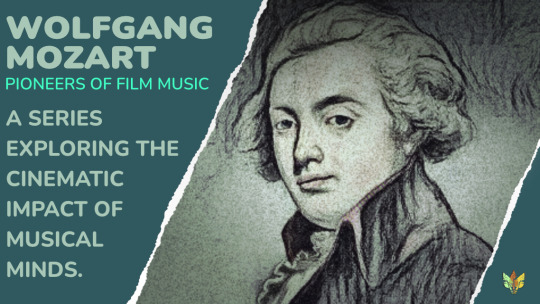
Wolfgang Mozart in Film Music
https://spearheadsofgod.com/wolfgang-mozart-in-film-music/?feed_id=1134
In the latest video of our series "Pioneers of Film Music," we delve into the life of Wolfgang Amadeus Mozart. We explore how his genius has transcended time, influencing not only classical music but also leaving a profound impact on film scores, television, and media today.
In the latest video of our series "Pioneers of Film Music," we delve into the life of Wolfgang Amadeus Mozart. We explore how his genius has transcended time, influencing not only classical music but also leaving a profound impact on film scores, television, and media today.https://youtu.be/Ws7aItNtWXo
#PioneersofFilmMusic#filmscorereview#filmscores#filmsoundtrack#musicanalysis#musiccomposition#musiccritique#musicexploration#musicinmovies#musicinterpretation#musictheory#scoreassessment#scoreevaluation#scorereview#soundtrackanalysis#soundtrackbreakdown#soundtrackstudy
0 notes
Text
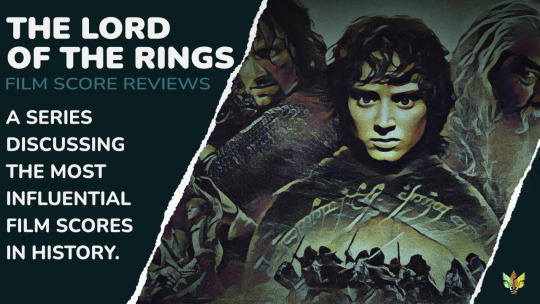
The Lord of the Rings Movie Score
https://spearheadsofgod.com/the-lord-of-the-rings-movie-score/?feed_id=1108
Delve into the enchanting realm of Middle-earth with our latest "Film Score Reviews" episode, spotlighting the timeless musical tapestry of The Lord of the Rings. Explore Howard Shore's masterful composition that brings Tolkien's epic to life, blending sweeping orchestral melodies and thematic depth, captivating both fans and new listeners alike.
Delve into the enchanting realm of Middle-earth with our latest "Film Score Reviews" episode, spotlighting the timeless musical tapestry of The Lord of the Rings. Explore Howard Shore's masterful composition that brings Tolkien's epic to life, blending sweeping orchestral melodies and thematic depth, captivating both fans and new listeners alike.https://youtu.be/zWr3eoLZTnA
#FilmScoreReviews#filmscorereview#filmscores#filmsoundtrack#musicanalysis#musiccomposition#musiccritique#musicexploration#musicinmovies#musicinterpretation#musictheory#scoreassessment#scoreevaluation#scorereview#soundtrackanalysis#soundtrackbreakdown#soundtrackstudy
0 notes
Text
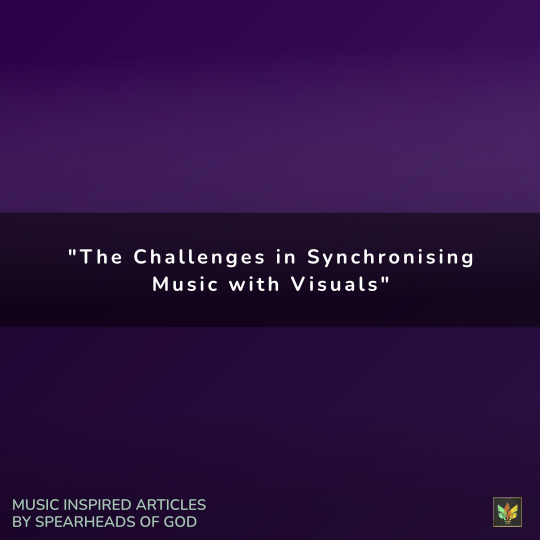
Synchronizing Music with Visuals
https://spearheadsofgod.com/the-challenges-in-synchronizing-music-with-visuals/?feed_id=1082
Spearheads of God's latest article delves into 'The Challenges in Synchronizing Music with Visuals.' Exploring the intricate relationship between music and visuals in various media, the piece examines technical and artistic hurdles faced by creators, offering insights into enhancing multimedia experiences for audiences.
IntroductionSynchronizing music with visuals has always been an essential aspect of multimedia presentations, films, video games, and various forms of artistic expressions. As technology advances, the demands for more complex and engaging synchronization between auditory and visual elements have grown. Despite technological progress, many challenges persist in achieving this intricate synchronization. This article delves into various aspects of these challenges, analyzing technological, artistic, psychological, and cultural factors.Technological ChallengesHardware LimitationsThe synchronization of music with visuals requires robust and high-performing hardware components. Any delay or lag can result in a noticeable mismatch between the visual and auditory elements. This is particularly true in live performances, where milliseconds of delay can have a detrimental impact on the overall experience. Modern technologies have provided tools like Digital Audio Workstations (DAWs) and real-time rendering engines, yet the issue persists, especially in systems with limited computing resources.Software ComplexitiesThe alignment of music with visuals involves sophisticated algorithms and precise timing control. The development of software capable of handling these complexities remains a significant challenge. The temporal mapping of auditory signals to visual events must be exact, and this requires a deep understanding of both music theory and computer graphics. Software platforms must be compatible with various formats and must adapt to the ever-evolving landscape of multimedia technologies.Artistic ChallengesCreating Emotional ResonanceMatching music with visuals is not merely a technological task; it's an artistic endeavor that seeks to create emotional resonance with the audience. Achieving this harmony requires a deep understanding of how different auditory and visual elements evoke emotions. Filmmakers and game developers often work closely with composers and sound designers to create a unified experience, but subtle misalignments can disrupt the intended emotional impact.Maintaining Aesthetic CohesivenessThe marriage of visuals and music must not only be technically precise but aesthetically cohesive. This means that the auditory and visual elements must complement each other in style, theme, and mood. Mismatched aesthetics can lead to a jarring experience, confusing the audience or detracting from the intended message. Examples from film history show that a carefully crafted synchronization of visuals and music can create iconic moments, while poor synchronization can ruin potentially impactful scenes.Psychological ChallengesPerception of SynchronizationHuman perception plays a crucial role in the challenges of synchronizing music with visuals. The way people perceive the timing of visual and auditory stimuli varies, and individual differences can affect the overall experience. Research in cognitive psychology has shown that the brain's processing of visual and auditory information may not always be in sync, leading to potential discrepancies in how the synchronization is perceived.Cognitive LoadThe simultaneous processing of visual and auditory information places a cognitive load on the viewer. Complex synchronization can overwhelm some viewers, detracting from their ability to engage with the content. This is particularly relevant in educational contexts, where the synchronization must aid in understanding rather than confuse or distract the learner.Cultural ChallengesCross-Cultural DifferencesThe interpretation of visual and auditory stimuli can vary across different cultures.
What might be considered harmonious and impactful synchronization in one culture might not translate effectively to another. The globalization of media requires creators to be mindful of these cultural nuances, balancing universal appeal with cultural sensitivity.Evolving Media Consumption HabitsThe way people consume media is continuously changing, influenced by technological advancements and cultural trends. These changes present challenges in how music is synchronized with visuals, requiring adaptability and innovation. The emergence of immersive media like virtual reality adds another layer of complexity, demanding new approaches to synchronization that engage the viewer in novel ways.ConclusionThe task of synchronizing music with visuals is multifaceted, involving technological, artistic, psychological, and cultural aspects. From the micro-level considerations of hardware and software to the macro-level considerations of human perception and cultural interpretation, the challenges are immense and ever-evolving. Innovations continue to push the boundaries, yet the underlying complexities remain, making this an exciting and demanding field of study.What are your thoughts and opinions on these challenges in synchronizing music with visuals? Have you experienced any of these challenges, or do you perceive them differently? Your insights would add valuable perspectives to this discussion.
#Articles#filmscorereview#filmscores#filmsoundtrack#musicanalysis#musiccomposition#musiccritique#musicexploration#musicinmovies#musicinterpretation#musictheory#scoreassessment#scoreevaluation#scorereview#soundtrackanalysis#soundtrackbreakdown#soundtrackstudy
0 notes
Text
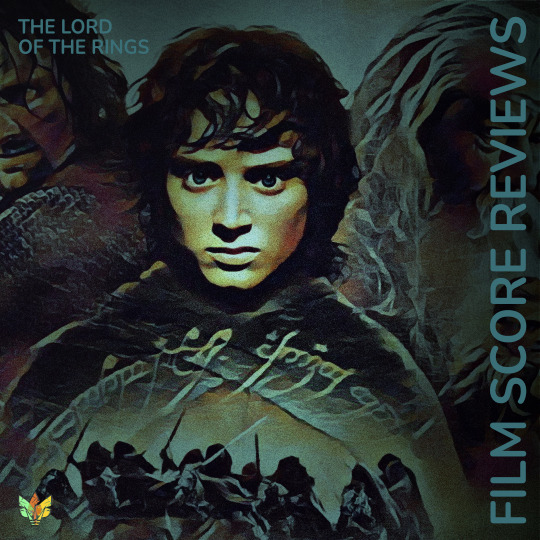
The Lord of the Rings (coming soon)
https://spearheadsofgod.com/the-lord-of-the-rings-coming-soon/?feed_id=1073
Coming soon in our “Film Score Reviews” series: an insightful exploration of the enchanting score for The Lord of the Rings. Journey with us into the musical world of Middle-earth, where themes and melodies shape this timeless adventure. Subscribe and stay tuned!
#AnalysisAnnouncements#filmscorereview#filmscores#filmsoundtrack#musicanalysis#musiccomposition#musiccritique#musicexploration#musicinmovies#musicinterpretation#musictheory#scoreassessment#scoreevaluation#scorereview#soundtrackanalysis#soundtrackbreakdown#soundtrackstudy
0 notes
Text
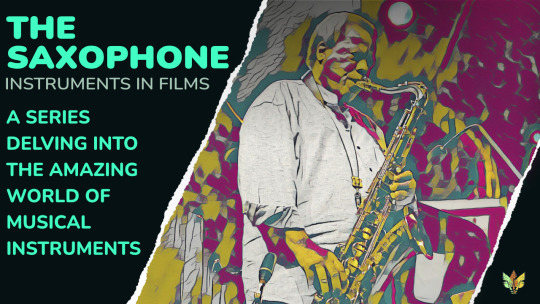
The Harmonica Instrument
https://spearheadsofgod.com/the-harmonica-instrument-2/?feed_id=1063
In the latest episode of our series "Instruments in Films," we explore the saxophone's profound influence on films, TV, and media. This video delves into the instrument's versatility and emotional resonance, showcasing how it has shaped narratives across various genres and continues to be a compelling presence in storytelling.
In the latest episode of our series "Instruments in Films," we explore the saxophone's profound influence on films, TV, and media. This video delves into the instrument's versatility and emotional resonance, showcasing how it has shaped narratives across various genres and continues to be a compelling presence in storytelling.https://youtu.be/JIyflxQJPRY
#InstrumentsinFilms#filmscorereview#filmscores#filmsoundtrack#musicanalysis#musiccomposition#musiccritique#musicexploration#musicinmovies#musicinterpretation#musictheory#scoreassessment#scoreevaluation#scorereview#soundtrackanalysis#soundtrackbreakdown#soundtrackstudy
0 notes
Text
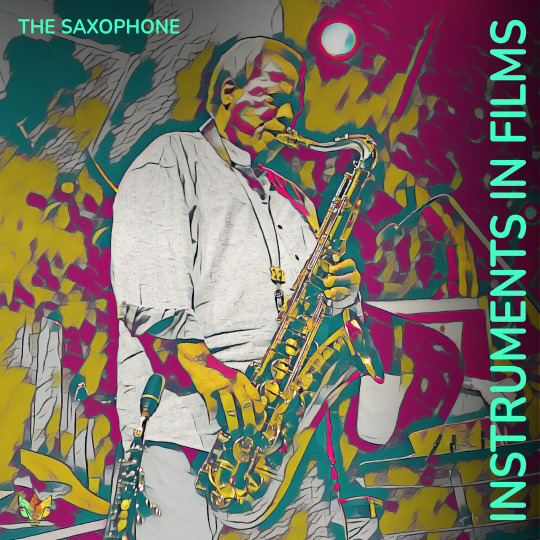
The Saxophone in Films (coming soon)
https://spearheadsofgod.com/the-saxophone-in-films-coming-soon/?feed_id=1038
Coming soon in our “Instruments in Films” series - journey into the captivating world of the Saxophone. Discover how this expressive instrument has deeply impacted film, TV, and media, shaping emotions, narratives, and the overall art of musical storytelling in visual mediums.
#AnalysisAnnouncements#filmscorereview#filmscores#filmsoundtrack#musicanalysis#musiccomposition#musiccritique#musicexploration#musicinmovies#musicinterpretation#musictheory#scoreassessment#scoreevaluation#scorereview#soundtrackanalysis#soundtrackbreakdown#soundtrackstudy
0 notes
Text
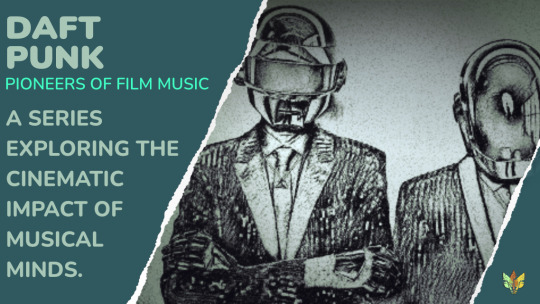
Daft Punk in Film Music
https://spearheadsofgod.com/daft-punk-in-film-music/?feed_id=1028
In our latest video of “Pioneers of Film Music”, we explore the phenomenal journey of Daft Punk, delving into their transformative influence on film, TV, and media. Uncover how their pioneering fusion of electronic and traditional elements reshaped soundscapes, forever altering the landscape of musical storytelling.
In our latest video of “Pioneers of Film Music”, we explore the phenomenal journey of Daft Punk, delving into their transformative influence on film, TV, and media. Uncover how their pioneering fusion of electronic and traditional elements reshaped soundscapes, forever altering the landscape of musical storytelling.https://youtu.be/0jmUTsPe3UI
#PioneersofFilmMusic#filmscorereview#filmscores#filmsoundtrack#musicanalysis#musiccomposition#musiccritique#musicexploration#musicinmovies#musicinterpretation#musictheory#scoreassessment#scoreevaluation#scorereview#soundtrackanalysis#soundtrackbreakdown#soundtrackstudy
0 notes
Text
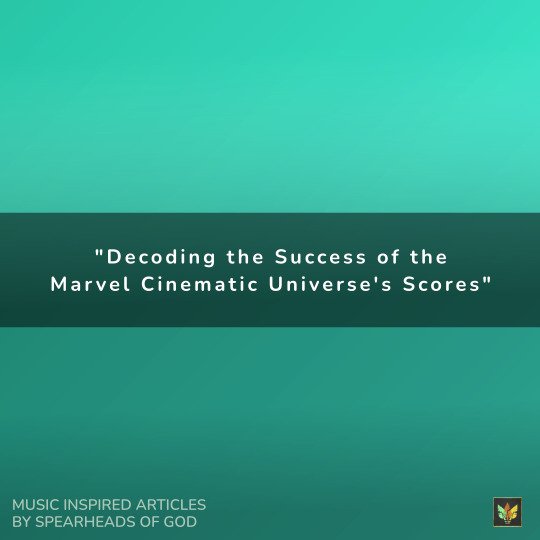
Decoding the Marvel Universe Scores
https://spearheadsofgod.com/decoding-the-success-of-the-marvel-cinematic-universes-scores/?feed_id=1012
Our new article, "Decoding the Success of the Marvel Cinematic Universe's Scores," delves into the underappreciated aspect of the MCU: its evocative music. Exploring everything from thematic scoring to genre diversity and narrative continuity, the piece illuminates how the MCU's scores have become integral to its cinematic success.
The Marvel Cinematic Universe (MCU) has enjoyed a run of extraordinary success since its inception in 2008. However, it is not merely the narratives, visual effects, or iconic characters that have contributed to its ascendancy. One often overlooked component is the mesmerizing musical scores that underpin these films. These scores serve as the emotional backbone of the MCU, guiding audiences through a myriad of feelings and adding depth to the narrative.Perhaps one of the most iconic examples of this is Alan Silvestri's "Avengers Theme," first introduced in 2012's "The Avengers." This composition was notable for the triumphant brass elements, dynamic string sections, and punctuated percussion that created an instantly recognizable motif. Whenever it played, viewers were primed for a heroic moment. This type of thematic scoring, where a specific melody or motif is associated with a character or concept, is a hallmark of the MCU. It roots back to classical opera’s leitmotif technique, wherein a melody is tied to a character or emotion.Silvestri's Avengers theme, with its emotional resonance and cinematic grandeur, has since become a staple of the franchise, reappearing with variations in multiple films. It signifies unity and shared purpose, reflecting the collective might of the Avengers and shaping audience perception. Additionally, each character's theme tells a unique story, like Ludwig Göransson’s Oscar-winning score for "Black Panther" (2018), which masterfully combines traditional African music with futuristic sounds, reflecting the dichotomy of Wakanda.Similarly, Michael Giacchino's Doctor Strange theme in "Doctor Strange" (2016) utilized the sitar and other non-traditional instruments, capturing the mystic and otherworldly realm of the character. These examples highlight how the MCU leverages music to accentuate a character’s identity and development, and the settings and themes of the films.However, it's not just the thematic approach that has contributed to the MCU's musical success. The blending of genres, from classical orchestration to rock, pop, and world music, has enhanced the diversity of the MCU's sound. Tyler Bates' "Guardians of the Galaxy" (2014) score is a clear example of this. Bates integrated 70's and 80's pop songs into the score, creating a nostalgic and emotive soundtrack that was integral to the film’s identity and the characterization of Peter Quill.Moreover, the score's complexity and thematic continuity across the films foster a seamless cinematic experience. Brian Tyler's score for "Iron Man 3" (2013) incorporated elements of Ramin Djawadi's theme from the first "Iron Man" (2008). This musical consistency helps to maintain narrative continuity, even when films are years apart and helmed by different directors and composers.The MCU's music also enhances the cinematic experience through dynamic scoring, using musical cues to underscore action sequences or emotional moments. For instance, Christophe Beck’s score for "Ant-Man" (2015) was marked by playful, jazz-infused melodies that perfectly captured the film's comedic tone. These nuanced musical choices are integral to communicating the essence of each story to the audience.In conclusion, the success of the MCU's scores lies in their ability to harness the emotive power of music, translating complex narratives and character arcs into universally accessible auditory experiences. The scores seamlessly blend traditional thematic scoring with genre diversity and dynamic musical cues, providing continuity while catering to each film's unique requirements.
They serve as narrative tools, character developers, and emotional anchors, making them indispensable to the MCU's overall success.The power of these scores to influence audience perception, to resonate with viewers, and to enhance the cinematic experience underscores the vital role of music in film. The next time you immerse yourself in the thrilling world of the MCU, pay close attention to the musical score. Listen to the motifs, the instruments, the rhythm, and you will find an entirely new layer of storytelling that speaks beyond dialogues and visual effects.As we continue to enjoy new chapters in the MCU, what are your thoughts on the role and impact of the musical scores? Do you have a favorite score, or perhaps a memorable moment enhanced by the music? How do you think the MCU’s musical themes contribute to your overall viewing experience?
#Articles#filmscorereview#filmscores#filmsoundtrack#musicanalysis#musiccomposition#musiccritique#musicexploration#musicinmovies#musicinterpretation#musictheory#scoreassessment#scoreevaluation#scorereview#soundtrackanalysis#soundtrackbreakdown#soundtrackstudy
0 notes
Text
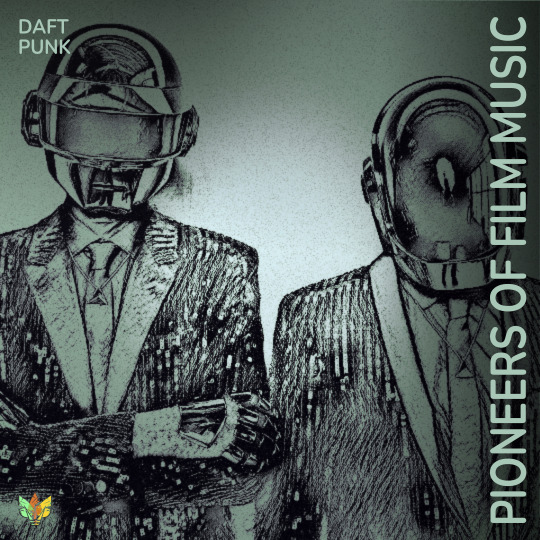
Daft Punk (coming soon)
https://spearheadsofgod.com/daft-punk-coming-soon/?feed_id=1002
Coming soon: Delve into the captivating world of film music as we uncover the profound impact of Daft Punk. Discover how the iconic duo revolutionized soundscapes, creating unforgettable cinematic experiences. Don't miss this immersive journey through their electrifying influence on the silver screen.
#AnalysisAnnouncements#filmscorereview#filmscores#filmsoundtrack#musicanalysis#musiccomposition#musiccritique#musicexploration#musicinmovies#musicinterpretation#musictheory#scoreassessment#scoreevaluation#scorereview#soundtrackanalysis#soundtrackbreakdown#soundtrackstudy
0 notes
Text
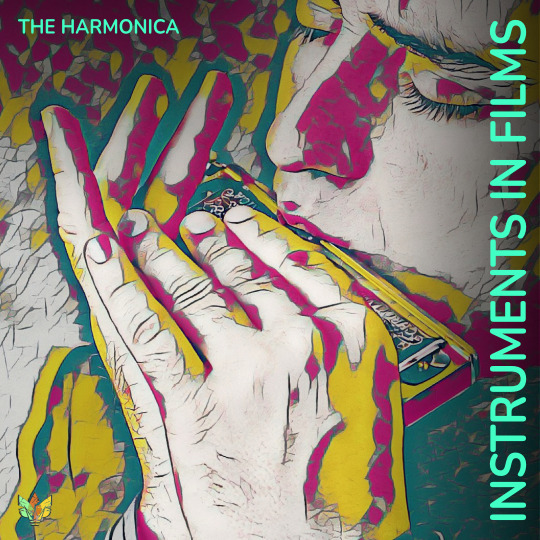
The Harmonica in Films (coming soon)
https://spearheadsofgod.com/the-harmonica-in-films-coming-soon/?feed_id=976
Discover the enchanting world of the harmonica as we delve into its mesmerizing melodies and its profound impact on the silver screen. Unravel the harmonica's captivating journey through films, TV, and media, in an upcoming video that celebrates its timeless allure and cinematic allure. Coming soon!
#AnalysisAnnouncements#filmscorereview#filmscores#filmsoundtrack#musicanalysis#musiccomposition#musiccritique#musicexploration#musicinmovies#musicinterpretation#musictheory#scoreassessment#scoreevaluation#scorereview#soundtrackanalysis#soundtrackbreakdown#soundtrackstudy
0 notes